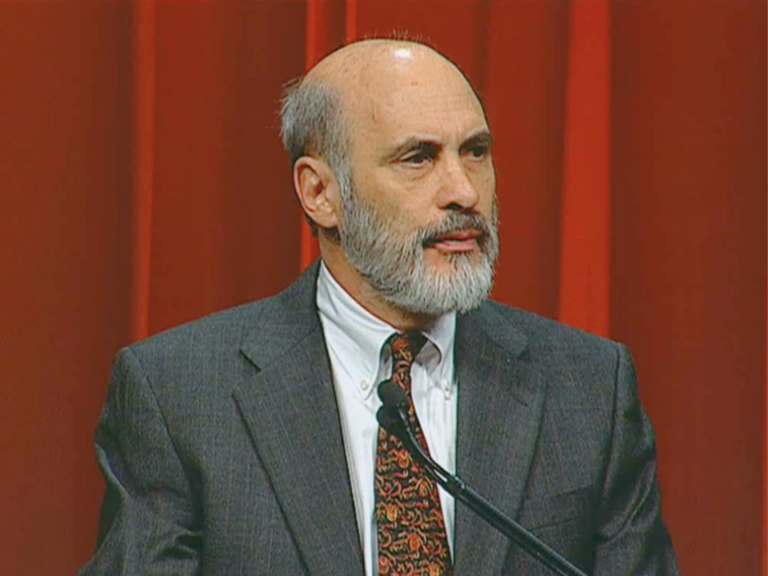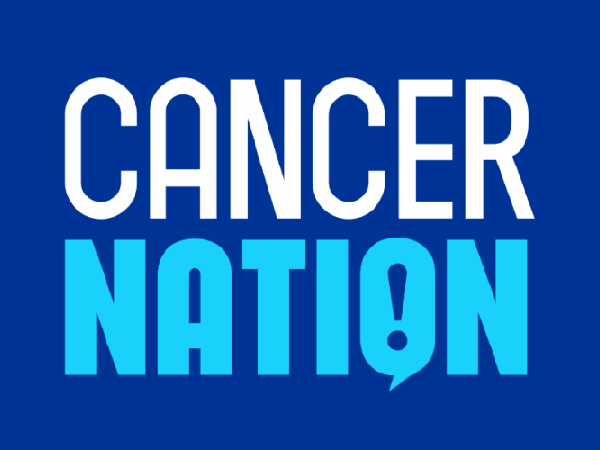The Neuroendocrine Tumor Research Foundation has joined the Cancer History Project to preserve the history of research, care, and survivorship of this uncommon disease.
NETRF was founded in 2005 as the Caring for Carcinoid Foundation, and is now in its 20th year.


VIDEO: Elaine Nord, photographer and neuroendocrine cancer survivor, speaks at the 2024 NETRF Symposium
By NETRF, May 22, 2025
Elaine Nord is a fine art photographer in Jupiter, Florida. With several jury awards for her prints, she uses her love of action and textures in her work. Early in her career, as a female sports photographer, Elaine broke barriers by photographing sports teams and individual athletes at the amateur and professional levels. Her images were often published and featured in print and online.
At the 2024 NETRF Research Symposium, Elaine spoke about her experience as a neuroendocrine cancer patient and used her photography to illustrate her journey. “I was moved by the number of researchers who took the time to talk to me about my presentation and how it resonated with them,” she said.


VIDEO: Ramesh Shivdasani: Viewing Intestinal NETs Through the Lens of Normal Human Enteroendocrine Cell Differentiation
By NETRF, May 22, 2025
NETRF’s 2024 Margie & Robert E. Petersen Research Symposium was held on October 28-30 at the Hotel Commonwealth in Boston, Massachusetts. The 2024 Symposium featured 30 presentations by premier neuroendocrine cancer researchers from around the world. Oral presentations were divided by NET topic focus, resulting in five sessions, each hosted by two moderators with talks covering basic, translational, and clinical research projects.
Ramesh Shivdasani, MD, PhD, delivered a keynote address, titled “Viewing Intestinal NETs Through the Lens of Normal Human Enteroendocrine Cell Differentiation”
Dr. Shivdasani received the Distinguished Service Award at the 2024 Symposium:
NETRF is proud to recognize Ramesh Shivdasani, MD, PhD, with the Distinguished Service Award. Dr. Shivdasani served as the Chair of NETRF’s Board of Scientific Advisors from 2007 to 2016. He has been active on the Board of Scientific Advisors since its inception and just recently was named as an Emeritus Member. During his impressive tenure, his expertise, leadership, and unwavering commitment have been instrumental in NETRF’s growth and advancement of our mission to accelerate research and improve outcomes for those affected by neuroendocrine cancer.
Dr. Shivdasani is known for his research on the cell of origin in intestinal neuroendocrine tumors, as well as his collaboration with other NETRF-funded researchers which yielded the discovery of non-functional PanNET subtypes characterized by different risks of recurrence.
Dr. Shivdasani is Professor of Medicine at Harvard Medical School; Professor of Medicine, Medical Oncology at the Dana-Farber Cancer Institute; and Deputy Director of the Dana-Farber/Harvard Cancer Center, Executive Committee. Until 2017, Dr. Shivdasani maintained a part-time practice in gastrointestinal oncology.
Related articles


A Pioneer of Prevention Paul Engstrom
By Fox Chase Cancer Center, May 12, 2021
Growing up in rural Minnesota, the middle son of a tiny town’s only physician, Paul F. Engstrom seemed destined for a career in medicine. The front of the family home doubled as a doctor’s office and family vacations were spent at medical conferences. As a teen, Engstrom would assist his father in sewing lacerations and accompany him to accident scenes. He would pick through the wreckage hoping to find people his father could help.
But he didn’t just become a doctor. He became a pioneer, building a legacy in cancer prevention and control, medical oncology, and mentorship that has impacted many thousands of lives. After a lifetime spent serving and caring for others, Engstrom retired at the end of 2018.
FDA to Move Away From Central Radiology To Investigator Review In PFS Endpoint Trials
By The Cancer Letter, July 27, 2012
When FDA shifted to reliance on PFS, no one could have predicted the odd events that would be observed in such trials. Consider the methodological and procedural oddities that emerged at the ODAC meeting April 12, 2011:
The Novartis application for its drug Afinitor (everolimus) encountered spectacular differences in assessment of response.
The company pursued two indications for Afinitor, conducting a randomized study in advanced neuroendocrine tumors of pancreatic origin and a study in neuroendocrine tumors of gastrointestinal or lung origin, also known as carcinoid tumors.
In a protocol-specified analysis in the carcinoid indication, investigator review determined that the trial should be stopped, because the drug had crossed the threshold of demonstrating efficacy.
However, central review came to the opposite conclusion: the trial should be stopped because there is no chance that it would ever demonstrate efficacy.
Novartis ended up with two diametrically opposed conclusions based on the same scans. This was unprecedented in the history of the FDA oncology office, the agency’s medical reviewer said at the ODAC meeting.
Novartis withdrew the application for the carcinoid indication. However, the pNET indication remained viable because the PFS metrics went in the same direction. The Afinitor carcinoid indication may be a case of bias that can readily occur in oncology, FDA officials say.
The Cancer History Project is a free, collaborative archive of oncology history that aims to engage the scientific community and the general public in a dialogue on progress in cancer research and discovery.
This project is made possible with the support of our sponsors: the American Society of Clinical Oncology, the University of Texas MD Anderson Cancer Center, ACT for NIH, UK Markey Cancer Center, Rutgers Cancer Institute of New Jersey/RWJBarnabas Health, The University of Kansas Cancer Center, and the National Comprehensive Cancer Network.
The Cancer History Project is an initiative of The Cancer Letter, and is backed by 60 partners, spanning academic cancer centers, government agencies, advocacy groups, professional societies, and more.
Interested in learning more about the history of oncology? Subscribe to our monthly podcast on Spotify or Apple Podcasts.








